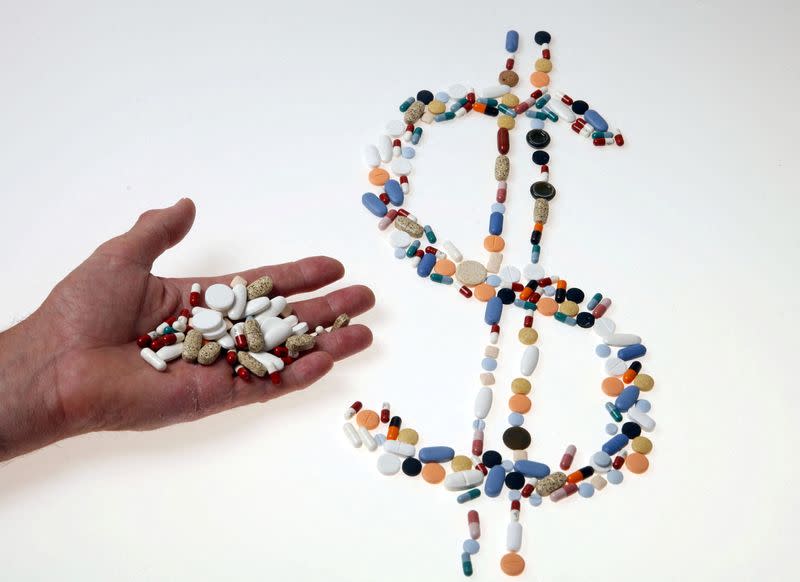J&J, Bristol Myers lose challenges to US drug price negotiation program

- Oops!Something went wrong.Please try again later.
- Oops!Something went wrong.Please try again later.
By Brendan Pierson
(Reuters) - A U.S. judge on Monday rejected a challenge by Bristol Myers Squibb and Johnson & Johnson to a law requiring them to negotiate the prices of their blockbuster blood clot prevention drugs with the U.S government's Medicare health insurance program or pay heavy penalties.
U.S. District Judge Zahid Quraishi in Trenton, New Jersey, became the fourth federal judge to uphold the program, one of Democratic President Joe Biden's signature initiatives, against drug industry challenges, rejecting their argument that it was an illegal taking of their property.
"In short, defendants are not taking drugs from plaintiffs," Quraishi wrote, adding that they were free to stop participating in Medicare if they did not want to negotiate.
The drugmakers did not immediately respond to requests for comment, though Bristol Myers has already filed a notice in court that it was appealing the ruling. Drugmakers have argued that it is not feasible to withdraw from Medicare because it represents nearly half the U.S. prescription drug market.
Blood thinners Eliquis from Bristol Myers and J&J's Xarelto were among the 10 drugs chosen last August for the first round of negotiations under the program, which was part of the 2022 Inflation Reduction Act. Biden and other supporters said the negotiated prices, to go into effect in 2026, will bring down prescription drug costs.
Eliquis brought Bristol Myers about $8.52 billion in U.S. sales last year, while J&J recorded $2.36 billion in Xarelto sales. Eliquis is shared with Pfizer and Xarelto with Bayer, which were not part of the lawsuits.
Quraishi's ruling comes two days before a conservative-leaning panel of the 5th U.S. Circuit Court of Appeals hears an appeal by PhRMA, the leading U.S. drug industry group, seeking to revive its lawsuit challenging the program after it was dismissed in February.
A Delaware federal judge last month rejected a challenge to the program by British drugmaker AstraZeneca. An Ohio federal judge in September rebuffed another lawsuit by the U.S. Chamber of Commerce, the nation's largest business lobbying group.
If the price negotiations are allowed to go forward, the first negotiated prices would be set in September, with more drugs added in future years. The program aims to save $25 billion in drug costs annually by 2031.
Industry analysts have said that the negotiated discounts could be steep, ranging from the statutory minimum of 25% to as much as 60%.
(Reporting By Brendan Pierson in New York, Editing by Alexia Garamfalvi and Bill Berkrot)

